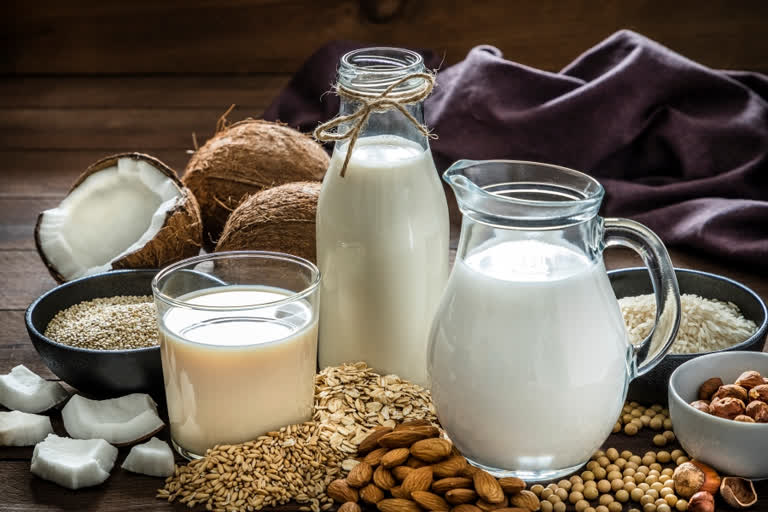There are a number of reasons why people are making the switch from dairy to plant-based alternatives. For one, many people aren't able to consume dairy. Not only are around 5% of UK adults lactose intolerant, dairy is also the most common allergen in early childhood. Another major reason that people are switching to plant-based dairy alternatives is because of animal welfare and environmental concerns.
Studies show that dairy milk produces more environmental emissions and requires more land and water usage than plant-based dairy alternatives. But despite being marketed as alternatives to dairy, plant-based products may not be exactly the same as dairy. So if you're thinking of making the switch, here are a few things to be aware of.
Pay attention to nutrients
Cow's milk is a rich source of many important nutrients, such as protein, calcium, iodine and vitamin B12. But many plant-based dairy alternatives don't naturally contain the same amount of these nutrients and micronutrients as dairy milk if any at all. On average, most plant-based alternatives contain almost no protein while one glass of cow's milk containing around eight grams of protein. Soya milk is the exception, containing a similar amount of protein per glass as dairy.
Protein is essential for healthy growth and development. While everyone needs protein, some groups may need more than others. For example, older adults need it to maintain muscle strength with ageing and children require it for growth. On average, most UK adults get around 15% of their protein intake from dairy products.
But if plant-based dairy alternatives are used as like-for-like replacements, this number could be less than 1.8%. So if you do make the switch to plant-based dairy products, soya milk may be your best bet for getting protein. If you use other types of plant-based milk alternatives, it will be important to include other high-protein foods in your diet, such as tofu or eggs, to make sure you're getting enough.
Most plant-based dairy alternatives also don't naturally contain the same vitamins and minerals that dairy does. As such, many need to have these added during the manufacturing process, which is called fortification. It's worth noting, however, that any plant-based dairy alternatives labelled organic will not contain any fortified vitamins and minerals as this would go against regulations.
Calcium is a very important micronutrient found in milk. It's needed for good bone health, particularly in children and adolescents. But my own research has shown that only 57% of milk alternatives, 63% of yogurt alternatives and 28% of cheese alternatives are fortified with calcium. So to ensure you're getting enough in your diet, check the label and look for products that have been fortified with calcium. Or, focus on eating foods that contain calcium such as fortified breads and cereals or tinned sardines or salmon.
